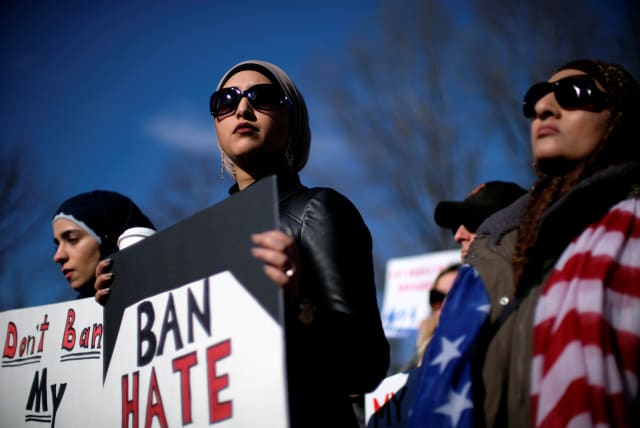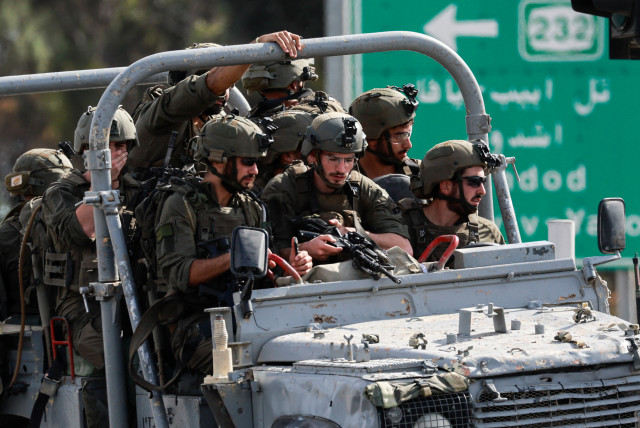CAIR ignores murder of 900 Jews, but claims to be combating antisemitism - analysis

How can CAIR stand against antisemitism when they don't acknowledge or condemn the killing of hundreds of Jews?
In a turbulent week for Israel, the sudden and unexpected attack from Hamas resulted in a tragic loss of over 900 Israeli lives and 2,600 injured, predominantly from the South. While the situation in the Gaza corridor has stabilized, tensions remain high. In this heightened context, the response (or lack thereof) from certain advocacy groups, particularly regarding Israel's losses, has raised eyebrows.
The Council on American-Islamic Relations (CAIR) of Ohio did not remain silent, holding a rally and releasing a statement that condemned the US's military aid to Israel and criticized its actions in the region. CAIR's focus on the ongoing plight of the Palestinians, the impact of American financial aid on the conflict, and Israel's alleged human rights abuses was clear. Yet, their statement omitted any explicit denunciation of Hamas' tragic attack that claimed so many Israeli lives.
Critics argue that for an organization that claims to champion universal human rights and is part of the White House's Strategy on Antisemitism, such an omission is glaring. The question arises: how can CAIR stand against antisemitism when they don't acknowledge or condemn the killing of hundreds of Jews?
How can they stand against antisemitism when they don't acknowledge, condemn the killing of Jews?
The concern isn't just about this singular incident. The White House's association with CAIR, an entity that has faced allegations of antisemitic affiliations and ties to Hamas, is perplexing for many. The FBI's prior decision to sever ties with CAIR, coupled with some members' alleged use of inflammatory and antisemitic rhetoric, deepens these concerns.
It's worth noting that combating antisemitism is a complex issue, requiring a nuanced and multi-faceted approach. Including organizations like CAIR in this effort may be seen as an attempt to foster a more inclusive strategy. However, as the situation in Israel shows, the choice of partners and their response to unfolding events are critical.
CAIR's mission to fight against Islamophobia, antisemitism, and other forms of hate is commendable. Their planned initiatives, from protecting religious establishments to educating communities, show a clear intent to act against prejudice. Yet, for their advocacy to be truly universal, it is imperative for groups like CAIR to acknowledge and condemn violence and prejudice in all its forms, irrespective of the perpetrator or the victim. Only then can we move towards a more peaceful coexistence.
Deborah Lipstadt, United States Special Envoy for Monitoring and Combating Antisemitism, approved the assumption that if any organization speaks in a problematic way that may be perceived as antisemitism, they will be taken out of the strategy.
Asked by The Jerusalem Post in June if any organization that speaks in a problematic way that may be perceived as antisemitism, will be taken out of the strategy, she said yes.
“We’re going to say, either you are or you aren't and that's how it's going to be.”
It may be time for Lipstadt to distance herself and the White House from this problematic organization.
Jerusalem Post Store
`; document.getElementById("linkPremium").innerHTML = cont; var divWithLink = document.getElementById("premium-link"); if (divWithLink !== null && divWithLink !== 'undefined') { divWithLink.style.border = "solid 1px #cb0f3e"; divWithLink.style.textAlign = "center"; divWithLink.style.marginBottom = "15px"; divWithLink.style.marginTop = "15px"; divWithLink.style.width = "100%"; divWithLink.style.backgroundColor = "#122952"; divWithLink.style.color = "#ffffff"; divWithLink.style.lineHeight = "1.5"; } } (function (v, i) { });

